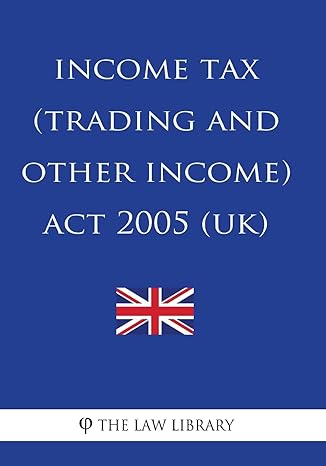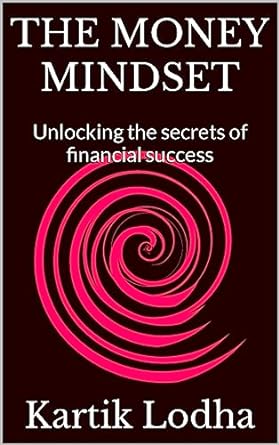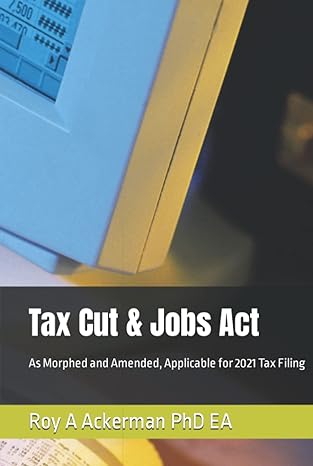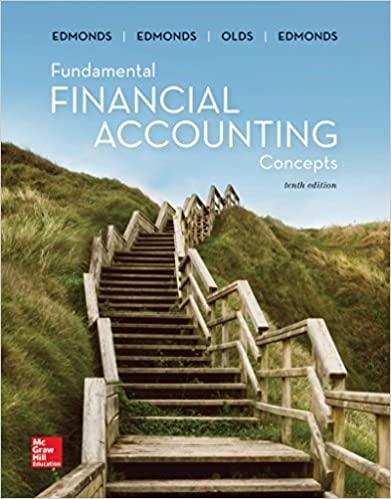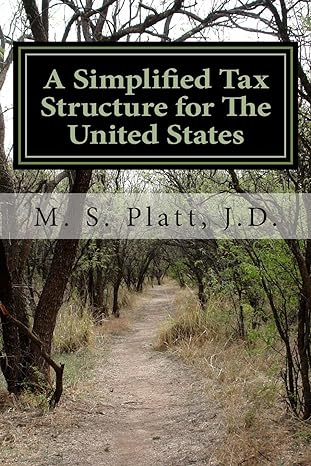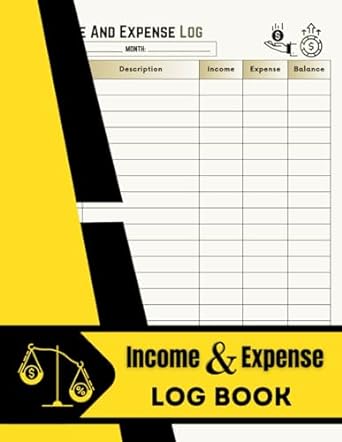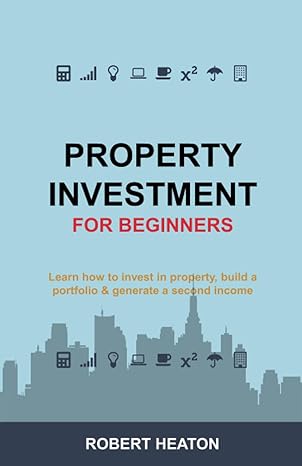Go back

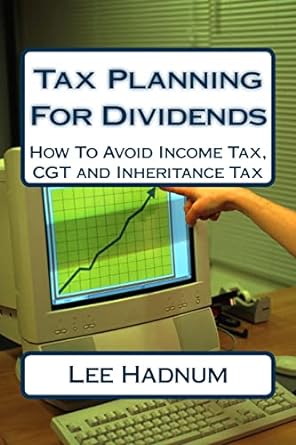
Tax Planning For Dividends How To Avoid Income Tax CGT And Inheritance Tax(1st Edition)
Authors:
Mr Lee Hadnum

Cover Type:Hardcover
Condition:Used
In Stock
Include with your book
Free shipping: May 07, 2024Popular items with books
Access to 3 Million+ solutions
Free ✝
Ask 10 Questions from expert
200,000+ Expert answers
✝ 7 days-trial
Total Price:
$0
List Price: $14.95
Savings: $14.95(100%)
Book details
ISBN: 1494945150, 978-1494945152
Book publisher: CreateSpace Independent Publishing Platform (January 8, 2014)
Get your hands on the best-selling book Tax Planning For Dividends How To Avoid Income Tax CGT And Inheritance Tax 1st Edition for free. Feed your curiosity and let your imagination soar with the best stories coming out to you without hefty price tags. Browse SolutionInn to discover a treasure trove of fiction and non-fiction books where every page leads the reader to an undiscovered world. Start your literary adventure right away and also enjoy free shipping of these complimentary books to your door.
Tax Planning For Dividends How To Avoid Income Tax CGT And Inheritance Tax 1st Edition Summary: With the highest income tax rate now 45%, and a maximum effective tax rate on dividends of 30.55%, any planning opportunities to reduce this can be very attractive. In this guide we look at precisely how UK and foreign dividends are taxed before covering some of the key tax planning opportunities available. One of the simplest and most effective ways to avoid or reduce income tax on dividends is to spread the income amongst your Spouse or Children. This is fully covered in this guide. Investing in equities via an ISA can also be highly attractive, as can using EIS and VCT investments to reduce income tax. Non UK domiciliaries have a number of options and their tax treatment differs from other UK residents when they receive foreign dividends. All of these issues, and more are covered in this guide. Contents include: How Dividends Are Taxed This includes a detailed explanation of how income tax applies to dividends, gross & net dividends, the 1/9 tax credit and how dividends are taxed along with other income at various income levels for 2013/2014. Dividend Splitting/Shifting Transferring dividends to another person to utilise their personal allowance, basic rate bands and/or CGT exemption can be attractive. We look at when and how you can do this in detail. Using a Company To Avoid Income Tax on Dividends Individuals can be taxed on dividends at up to 30.55%, whereas companies can usually receive dividends free of tax. We look at how you can use company ownership to reduce tax on your dividends. Using ISA's To Reduce Tax ISA's are one of the most effective tax planning structures for small investors. We look at how you can maximise the benefits from these often overlooked wrappers. Using Tax Shelters: VCT and EIS Shares EIS and VCT schemes can provide significant income tax and capital gains tax benefits. We show you how to use these to slash your UK tax bill. Extracting Dividends Whilst Non UK ResidentNon-residents have a number of very attractive tax reliefs available to them, however, changes from April 2013 have now made avoiding tax on UK dividends more complex. We look at how and when non-residents can avoid tax on UK dividends. Tax Treatment of Foreign Dividends Dividends from overseas companies are subject to separate tax provisions. We look at how these apply. Tax Planning For Non UK Domiciliaries Receiving Foreign Dividends. Non UK domiciliaries ("Non doms") can often avoid tax on foreign dividends by using the remittance basis. We look at how non doms can structure their affairs to reduce or avoid tax on dividends. Dividend Waivers Dividend waivers can be used to allocate profits to specific shareholders to take account of lower tax rates. However, their are a number of factors to take into account before dividend waivers can be used effectively. About The Author The Author of "Tax Planning For Dividends" is Lee Hadnum. Lee is a rarity among tax advisers having both legal and chartered accountant qualifications. After qualifying a prize winner in the Institute of Chartered Accountants exams, he also went on to become a chartered tax adviser (CTA). He worked in Ernst & Youngs Entrepreneurial Services department for a number of years before setting up his own tax planning practice. He is now a full time tax author.
Customers also bought these books
Frequently Bought Together
Top Reviews for Books
Lee WILLIAMS
( 5 )
"Delivery was considerably fast, and the book I received was in a good condition."


